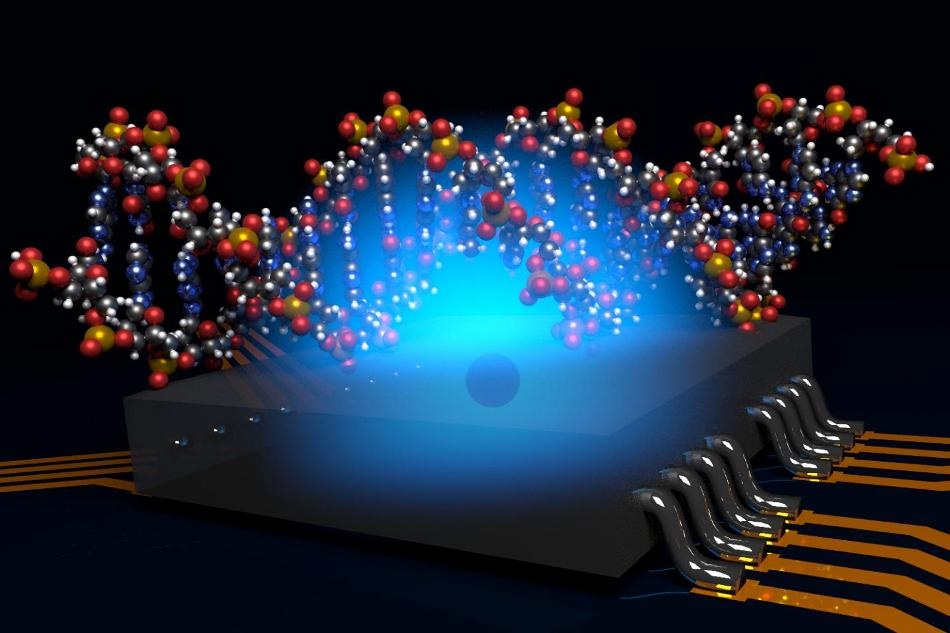Oct 12 2016
 Researchers at the University of Melbourne have developed a way to radically miniaturize an MRI machine using atomic-scale quantum computer technology. Credit: Viktor Perunicic, University of Melbourne
Researchers at the University of Melbourne have developed a way to radically miniaturize an MRI machine using atomic-scale quantum computer technology. Credit: Viktor Perunicic, University of Melbourne
Quantum computer technology has been used by researchers at the University of Melbourne to develop a technique to radically miniaturize a Magnetic Resonance Imaging (MRI) machine.
This new system has the potential for imaging the structure of a single bio-molecule and can overcome major technological challenges and also provide a significant new tool for drug discovery and biotechnology.
The research, recently featured in Nature Communications, was headed by Prof Lloyd Hollenberg at the University of Melbourne. Prof Lloyd Hollenberg worked in collaboration with researchers at the ARC Centre of Excellence for Quantum Computation and Communication Technology (CQC2T) to plan the design of the quantum molecular microscope.
The researchers suggested the use of atomic-sized quantum bits (qubits) generally associated with the production of quantum computers, but here they would be used as highly sensitive quantum sensors for imaging independent atoms in a bio-molecule.
Determining the structure of bio-molecules such as proteins can often be a barrier to the development of novel drugs. By using quantum sensing to image individual atoms in a bio-molecule, we hope to overcome several issues in conventional biomolecule imaging.
Professor Lloyd Hollenberg, Thomas Baker Chair in Physical Biosciences, University of Melbourne
Modern techniques produce a crystal of the molecule to be examined and use X-ray diffraction to determine the average structure of the molecule. However, there are chances of loosing vital information through the crystallization and averaging processes. It is also not possible to crystallize all bio-molecules, especially proteins linked with cell membranes, which play a significant role in the production of new drugs.
"Our system is specifically designed to use a quantum bit as a nano-MRI machine to image the structure of a single protein molecule in their native hydrated environments," added Prof Hollenberg.
"As part of our research in quantum computing we have also been working on the nearer-term applications of atomic-based quantum technology investigating the use of a single quantum bit as a highly sensitive magnetic field sensor," says Prof. Hollenberg.
It is possible to make atomic qubits exist in two states simultaneously. This is a disturbingly strange feature that underpins the sensitivity of qubits as nano-sensors and also the power of a quantum computer.
In a conventional MRI machine large magnets set up a field gradient in all three directions to create 3D images; in our system we use the natural magnetic properties of a single atomic qubit. The system would be fabricated on-chip, and by carefully controlling the quantum state of the qubit probe as it interacts with the atoms in the target molecule, we can extract information about the positions of atoms by periodically measuring the qubit probe and thus create an image of the molecule's structure.
Mr Viktor Perunicic, PhD Researcher, University of Melbourne
"The system could be constructed and tested relatively quickly using diamond-based qubits. However, to capture really high resolution molecular images in the longer term, CQC2T's silicon-based qubits might have the advantage because they have very long quantum coherence," said Prof. Hollenberg.
"The construction of such a quantum MRI machine for single molecule microscopy could revolutionise how we view biological processes at the molecular level, and could lead to the development of new biotechnology and a range of clinical applications."